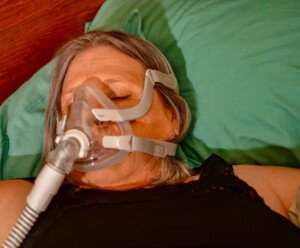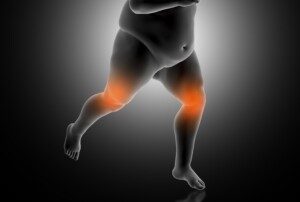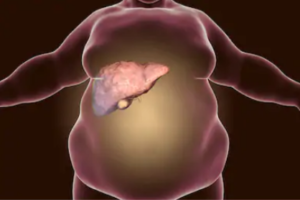The special needs woman I work with weighs 240. I’ll never preach fat acceptance; I’ll encourage her on her weight loss plan.
I’m a direct care provider to this individual; let’s call her Ayva, who’s in her 30s.
I refuse to lie to her like a fat acceptance influencer would.
Ayva is no less deserving of medical FACTS just because she’s what is now known as “special needs.”
Once or twice a week I spend several hours with her in the community, taking her wherever she wants to go.
Ayva has a very mild intellectual disability, and in fact, once had a part-time job at a large retail store.
Before I began working with her, she had intentionally lost 80 pounds from 320.
She wants to lose more weight, even though she’s come to a standstill.
We have discussed weight loss, but only because Ayva herself had brought up the subject.
She has told me that her host home provider (the provider whose house she has lived in for 10+ years) once said to her, “You don’t ever want to get like that,” while pointing to a very morbidly obese older woman.
The fat acceptance community of TikTok and Instagram would be outraged at the gentleman’s comment. They’d label him fatphobic.
I, on the other hand, see his comment as a glaring warning meant as a rude awakening for Ayva, whose youth so far has been protecting her from deteriorating into mobility impairment, type 2 diabetes, shortness of breath, knee joint degeneration and other afflictions that are caused by obesity.
Ayva should be ever so thankful that this man was kind enough, caring enough, to make such a comment. She’s like a daughter to him, being in his 50s.
Despite being intellectually slow, Ayva is capable of intelligent, deep conversations, and is fully aware of the health consequences of obesity.
I take her to the gym once a week, which was entirely her idea. With my background in personal training, I have given her detailed information and instruction about exercise, along with helpful tips on improving her eating habits.
Having worked many days now with Ayva, I have become familiar with her eating habits; quite simply, she eats too much processed food.
She wants to improve this, and feels very comfortable discussing diet, exercise and weight loss with me.
It’s disturbing to think that if someone in the fat acceptance camp were her direct care provider, they’d grab any chance they could to indoctrinate her into the mindset of obesity celebration.
They’d really jump at this since Ayva has the label of “special needs” or someone “with a cognitive disability.”
I’ve had many complex discussions about different topics with her, and I honestly must say that she’s too smart to be brainwashed by the cult of fat acceptance.
Accepting fatness is the same as accepting drunkenness or drug addiction.
I have never mentioned to Ayva anything about how weight loss would improve her appearance.
It’s always been about health and mobility, particularly in older age.
There is no reason why Ayva, who often refers to herself as “very high functioning,” should accept her body at 240 pounds (she’s 5’7).
The fat liberationists on social media would brand me as harmful to her, even though if they were the DCP, they’d encourage her to stay at 240 pounds.
They’d tell her lies such as, “Your body is perfect just the way it is; you don’t have to change a thing,” or, “There’s no proof that obesity is dangerous to the body.”
They’d lie their heads off to a disabled woman — perhaps so that they could feel good about themselves, as well as because they’ve been programmed by the toxic fat acceptance movement.
One need not be a medical doctor to know the facts about obesity, especially morbid obesity, which means at least 100 pounds over one’s ideal weight.
Here are eight frightening facts about morbid obesity – that should not be hidden from a person just because their profile says “mild intellectual disability” and “anxiety.”
Increased Risk of Cardiovascular Disease

Plaque buildup in a coronary artery. Shutterstock/Explode
Morbid obesity significantly raises the risk of coronary artery disease, heart failure and stroke.
Studies indicate that obesity increases the likelihood of hypertension, high cholesterol and type 2 diabetes, which are key risk factors for cardiovascular problems.
Source: Lavie, C. J., et al. “Obesity and Cardiovascular Disease: Implications for Prevention and Management.” Progress in Cardiovascular Diseases, 2018.
Higher Risk of Type 2 Diabetes

Ayva knows this all too well, yet it’s deplorable that fat acceptance influencers would tell her she doesn’t need to lose weight or eat more healthfully.
Morbid obesity puts one at much higher risk of developing insulin resistance and type 2 diabetes.
This metabolic disorder can lead to serious complications such as kidney failure, neuropathy, amputation and blindness.
Source: Dabelea, D., et al. “The Influence of Obesity on the Risk of Developing Type 2 Diabetes.” Diabetes Care, 2012.
Increased Mortality Risk

Morbid obesity significantly increases the risk of premature death.
Research shows that severe obesity can reduce life expectancy by up to 10 years, with studies linking it to a higher mortality rate from various causes, including heart disease and cancer.
Source: Flegal, K. M., et al. “Obesity and Mortality: A Meta-Analysis of 97 Prospective Studies.” JAMA, 2007.
Cancer Risk

Rhoda Baer/cancer.gov
Morbid obesity is associated with an increased risk of several types of cancer including breast, colon, liver and kidney cancer.
The excess body fat leads to chronic inflammation and hormone imbalances that can promote the development of cancerous cells.
Source: Calle, E. E., et al. “Overweight, Obesity, and Mortality from Cancer in a Prospectively Studied Cohort of U.S. Adults.” New England Journal of Medicine, 2003.
Sleep Apnea and Breathing Disorders

CPAP machine for sleep apnea. Shutterstock/Grossinger
Obesity, particularly abdominal, is a major cause of obstructive sleep apnea (OSA), a condition where breathing repeatedly stops during sleep.
OSA is linked to severe health complications, including high blood pressure, heart disease and stroke.
Source: Tishler, P. V., et al. “Obesity and Sleep-Disordered Breathing.” American Journal of Respiratory and Critical Care Medicine, 2003.
Joint and Musculoskeletal Problems

Shutterstock/kjpargeter
The excess weight puts significant strain on joints, particularly of the knees, hips and lower back.
This can lead to osteoarthritis, chronic pain and disability, often requiring surgical interventions like joint replacements.
Source: Guh, D. P., et al. “The Incidence of Osteoarthritis and Its Economic Implications.” Obesity Reviews, 2009.
Liver Disease and Fatty Liver

Shutterstock/Kateryna Kon
Morbid obesity is a leading cause of non-alcoholic fatty liver disease (NAFLD), which can progress to cirrhosis and liver failure.
Fatty deposits in the liver can cause inflammation and scarring, ultimately impairing liver function.
Source: Targher, G., et al. “Obesity and Risk of Nonalcoholic Fatty Liver Disease.” Journal of Hepatology, 2010.
Increased Risk of Stroke

Shutterstock/corbac40
Obesity increases the likelihood of stroke by promoting the development of risk factors like high blood pressure, diabetes and high cholesterol.
These conditions can lead to the formation of blood clots or plaque in the arteries, which can break off, travel to the brain and block blood flow in the brain.
Source: Dong, C., et al. “Obesity and Risk of Stroke: A Meta-Analysis.” International Journal of Obesity, 2006.
Truth Is Kinder than Lies
If a direct care provider had a TikTok account steeped in celebrating her morbidly obese weight and aggressively shunning the concept of intentional weight loss, that DCP would be telling Ayva and those similar to her that “diets don’t work; you’re beautiful just as you are.”
This isn’t about beauty. Ayva isn’t gunning for a career as a model.
She, as well as many overweight women, simply want to have more stamina, avoid type 2 diabetes, be much healthier, age gracefully and not have to rely on a motorized scooter for shopping.
But let’s face it: Losing 100 pounds from morbid obesity will always make one look a lot better.
Ayva loves clothes, but her wardrobe choices are limited due to her size. So yes, looks definitely do factor into this.
Ayva lost that 80 pounds by simply eating less, relative to the amount she was eating at 320 pounds.
But she still eats too much, hence a stall at 240. She also needs to exercise more frequently.
And whatever she asks me, I will give her a truthful answer. I will help Ayva with her weight loss and fitness goals, not delude her with false information and patronizing flattery – which would be a grave insult to her intelligence.
 Lorra Garrick is a former personal trainer certified through the American Council on Exercise. At Bally Total Fitness she trained women and men of all ages for fat loss, muscle building, fitness and improved health.
Lorra Garrick is a former personal trainer certified through the American Council on Exercise. At Bally Total Fitness she trained women and men of all ages for fat loss, muscle building, fitness and improved health.
.










































